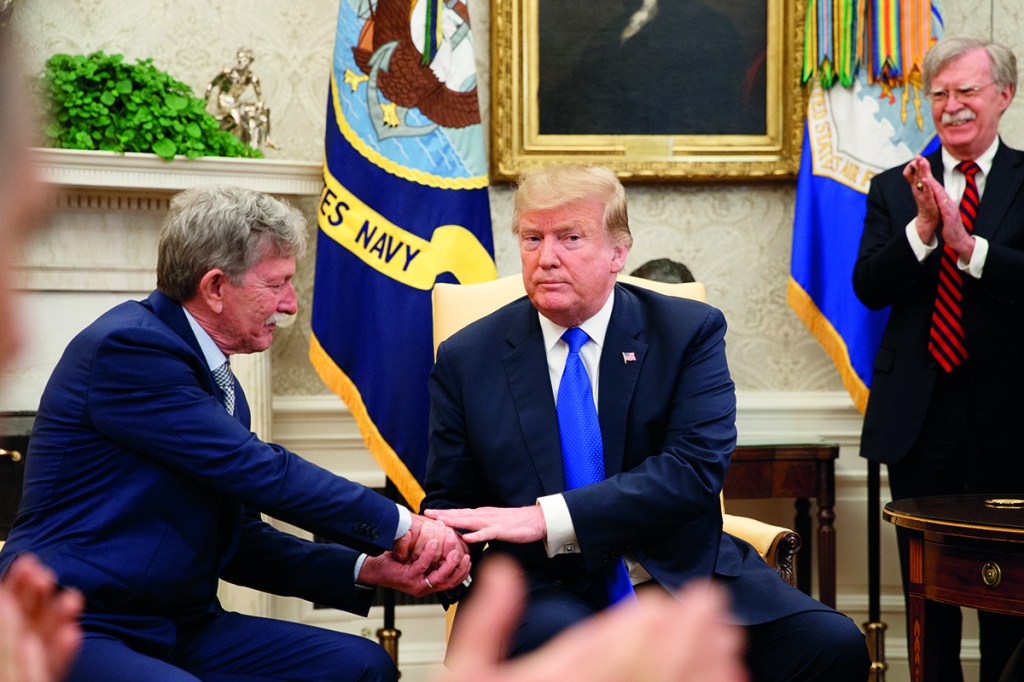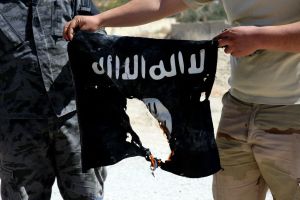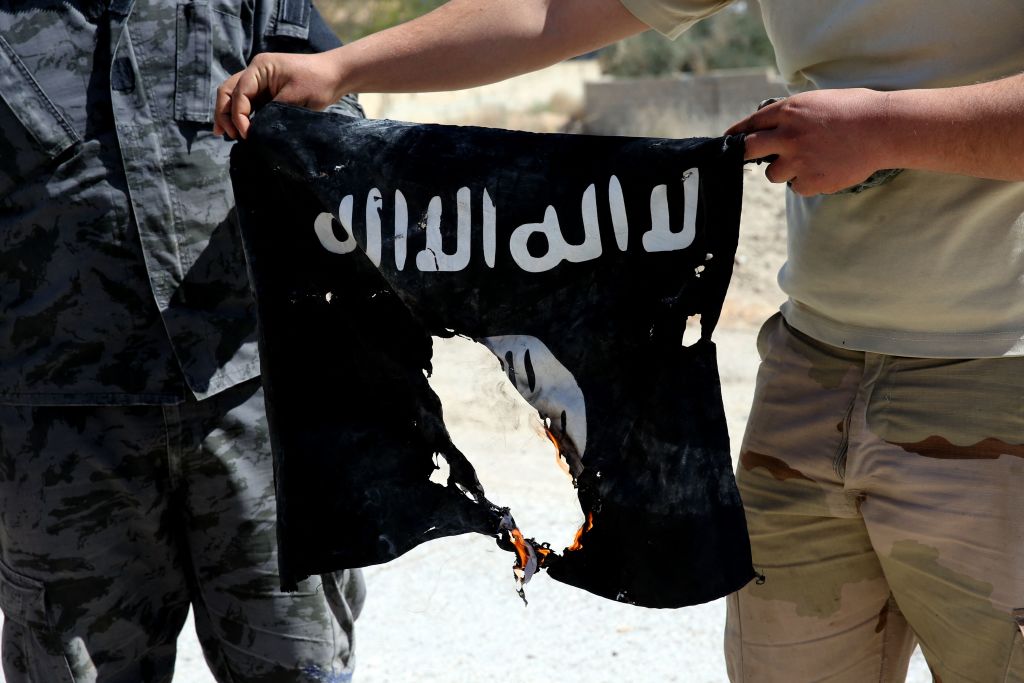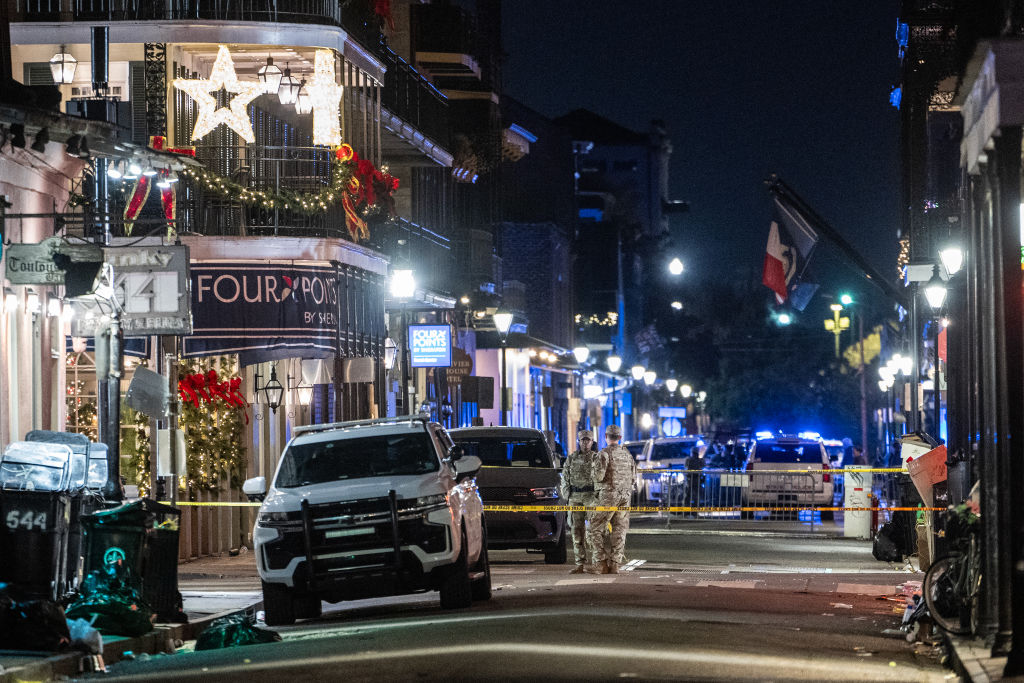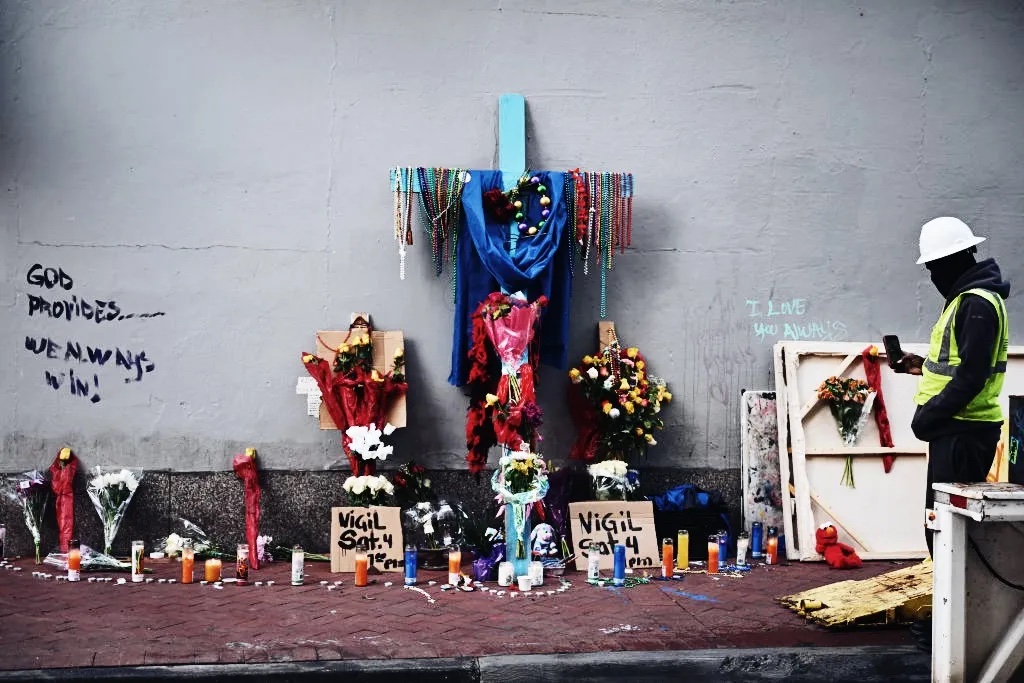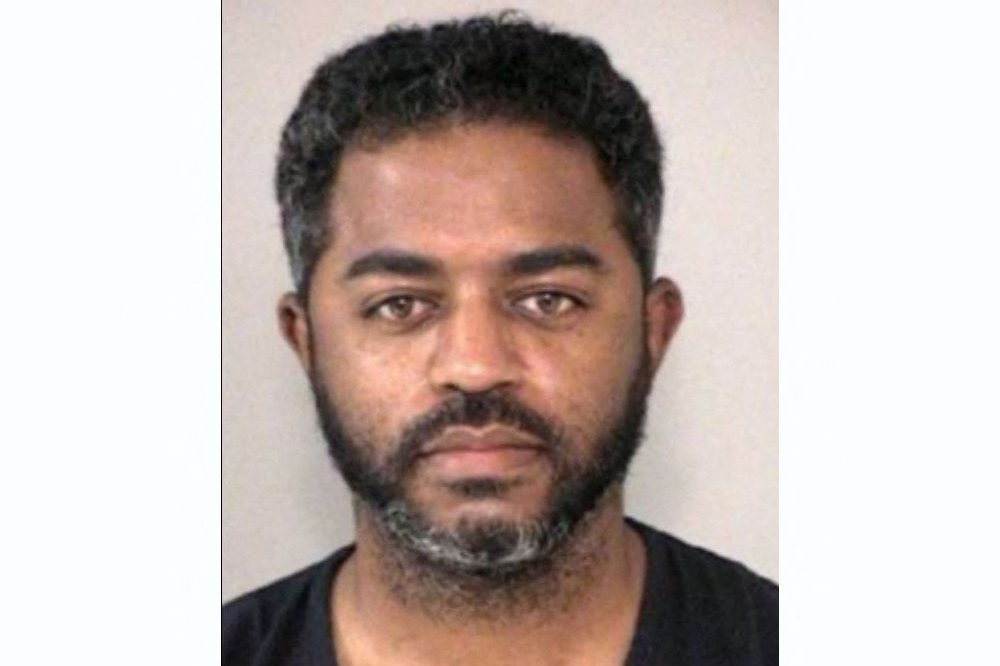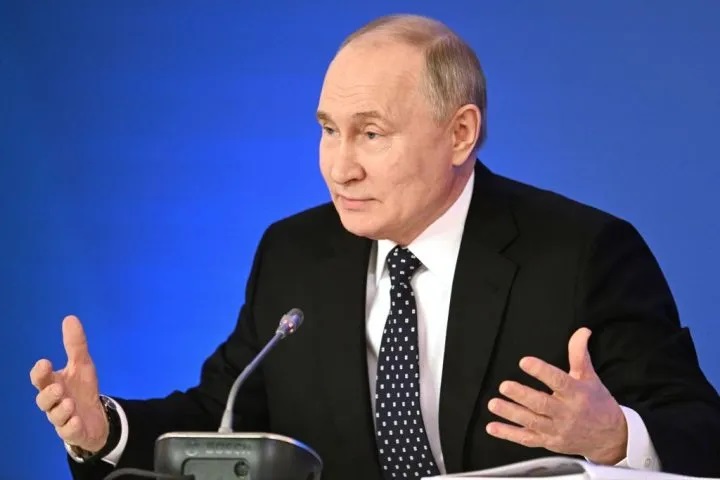President Trump has tweeted that, among other things he’s best at, he is ‘the greatest hostage negotiator in the history of the United States’. He was supposedly quoting his special envoy for hostages, but then there was no record of the envoy ever voicing this precise opinion, so it was really just the usual Trump boasting. But that doesn’t mean he’s wrong.
Trump really does seem to care about hostages. He certainly likes the Oval Office photo ops with Americans he’s helped to free, bathing in their gratitude and nodding along to the stream of compliments that such visits guarantee. He seems willing to do a deal with almost anyone, even ‘shithole countries’. By his count, he’s freed some 50 Americans from 22 countries in his time in office. And of course, in his view, he’s done much, much better than President Obama did.
Carl and Marsha Mueller agree. Their daughter Kayla was one American hostage who didn’t make it home. She was murdered by Isis in 2015, at the age of 26, the Obama administration having watched, powerless, as one after another US (and British) hostage was executed on camera.
I had got to know Kayla while covering the Syrian civil war. She was a wide-eyed innocent who went into Syria to help and ended up as a sex slave for the Isis leader, Abu Bakr al-Baghdadi. Unlike other Isis victims’, her death was not filmed. Isis claimed she had died in an airstrike. A former Yazidi sex slave told me that this was a cruel lie, a barb that Isis wanted to leave in the flesh of the US government.
The Muellers accuse Barack Obama of having stopped them from negotiating to save Kayla’s life. They spoke from the podium at the Republican National Convention in August to endorse Trump. Carl said: ‘The Obama administration hid behind policy so much that we felt hopeless… The administration showed more concern for the terrorists in Guantanamo than the American hostages in Syria… The Trump team gave us empathy we never received from the Obama administration. The Obama administration said it was doing everything it could. The Trump administration is.’ He finished with a damning comparison: ‘If Trump had been president when Kayla was captured, she would be here today.’
Obama vs Trump: their different approaches to freeing hostages are partly a matter of character. Trump reacts quickly and emotionally and disdains the rulebook. ‘No drama Obama’ was cool and aloof — too detached, almost to the point of not seeming to care, in the view of one Washington figure who dealt with him on this issue. That’s how it appeared to the Muellers when they went to see Obama in the Oval Office as Isis started beheading western hostages. I spoke to them shortly after the visit. They had been advised to ‘make it personal… the President has daughters of his own’. But to Carl, Obama’s face was an impenetrable mask. ‘I was kind of taken aback by the lack of expression on the President’s face,’ he said.
The Muellers were clinging to the hope that a deal could be done with Isis for Kayla’s release. They’d been teaching themselves about negotiating, and Carl thought about some of their new skills as he sat opposite Obama. ‘Through all this we’ve learned things. One of those things was microexpressions [the fleeting, involuntary facial expressions that betray emotion]. He had none.’
The Muellers’ belief in negotiation with Isis was no fantasy. Through an intermediary, they had received an email from Isis demanding the release of Aafia Siddiqui, a Pakistani woman jailed in the US for terrorism offenses. Failing that, the email said, ‘a simple cash payment of €5 million will suffice’. After almost three months, Isis sent another email, the last the Muellers would receive. ‘You have 30 days to have the full €5 million cash demand all in €500 notes that are not ripped, misprinted or damaged in any way, ready in Turkey. If you fail to meet this deadline, we will send you a picture of Kayla’s dead body. This is not an empty threat, this is a promise that we will follow through. You can ask the released cellmates of Kayla what happens when we make such promises. You have 30 days.’
These emails to the Muellers showed the true face of Isis: half fanatic, half criminal. Though the words were chilling, the Muellers found hope in them. The demand for €5 million meant it was conceivable that Isis might release Kayla; the price for the male hostages was an impossible $100 million. The Muellers wrote back to the hostage-takers, their exact responses dictated by FBI agents whose instructions were to buy time. But then a senior official on the National Security Council, a former colonel, told them they could be prosecuted if they tried to pay. Five million euros was many times what the Muellers could scrape together, but what they saw as government ‘threats’ would scare away any rich white knight who might want to help. The European hostages held by Isis were all freed because ransoms were paid. The Americans and the Britons were all killed.
For decades, the US has declared that it would never pay terrorists. The rhetoric is the same under President Trump as under President Obama. This is the so-called ‘no concessions’ policy. For one thing, it is meant to stop terrorist groups from getting more money for new acts of terrorism. As the leader of al-Qaeda in Yemen wrote: ‘Kidnapping hostages is easy spoil…a profitable trade and a precious treasure.’ Obama may have appeared unemotional to the Muellers but, after Kayla’s death, he said that telling hostages’ families there could be no ransom was ‘as tough as anything I do’. Paying for hostages would only lead to more kidnapping, he said — a powerful argument made by successive administrations.
Most people instinctively accept this logic (according to opinion polls on the issue) but not, it seems, the jihadis themselves. They carry on taking Americans captive even though there’s no expectation of a ransom payment. My impression on the ground in Syria and Iraq was that Isis and al-Qaeda snatched any westerner they could get their hands on and only later worked out what to do with them. In the next hostage crisis, we might see Americans being taken and killed to encourage European governments to pay more and to pay quickly. This, too, could be the logical, terrible outcome of the US government’s policy never to pay.
In truth, the US government policy of ‘no concessions’ to terrorists or their backers has been steadily eroded by force of circumstance. President Obama eventually made clear that it would be unthinkable to take parents to court for paying ransom. And he himself was willing to make some concessions to ‘terrorists’ if the captive were a soldier: Sgt Bowe Bergdahl was handed back by the Taliban in exchange for five prisoners held in Guantanamo.
President Trump, too, has swapped prisoners with the Taliban: his Afghan negotiator orchestrated an exchange of an American academic for three Taliban commanders. He also reportedly authorized the offer of $2 million to North Korea — a ‘state sponsor of terrorism’ — to help get Otto Warmbier home. This is the ultimate ‘art of the deal’.
Trump as president has been the beneficiary of hard lessons learned by the Obama administration about hostages. With the families of the Isis captives, the FBI would sometimes tell them one thing, the State Department another and the National Security Council something else. Families would come to Washington, DC and watch in disbelief as bureaucratic infighting took place in front of them in meetings called to tell them what the government was doing.
I have interviewed several of the families, and they all say the same thing: they felt enormous relief that the cavalry had arrived and the US government was stepping in. But week by week, their optimism faded as the mantra of ‘We’re doing all we can’ seemed to mean only that their file was being moved from one pile of paper to another.
I spoke to the Washington figure who had dealt with this issue. Obama, he said, had no ‘dedicated ass-kicker’ to deal with hostages, someone he could send out from the Oval Office, ears ringing, to put a boot behind the federal bureaucracy. After Isis killed its American hostages, the Obama administration carried out a review of what had gone wrong. He then created the Special Presidential Envoy for Hostage Affairs: a presidential ass-kicker. Trump kept the post, and filled it, though this is a rare bit of government work he is happy to do himself. The effects are felt throughout the bureaucracy. Everyone knows that hostages are a priority for the President.
This means that things get done but it may also have a perverse effect. Professor Dani Gilbert, an expert on hostages who teaches at the US Air Force Academy, worries about President Trump’s highly visible involvement in hostage cases, the photo ops with freed detainees at Dover or in the White House. ‘It advertises to the entire world that if you take an American captive you will get the personal attention of the President of the United States. And while that is the most important thing in the world to families who want to bring their loved ones home, it puts every other American abroad in a lot of danger because it really raises the stakes of what it means to use an American as leverage.’
President Trump’s attention, though fierce, can be selective. He seems to have ignored Paul Whelan, an American charged with spying in Moscow. Whelan says his detention is a ‘political kidnapping’ to allow a prisoner swap with someone the Kremlin wants out of a US jail. He is a Marine Corps veteran and a Trump supporter, but his captivity is passing without presidential comment by tweet. Then there’s Mark Frerichs, an American aid worker and Navy veteran kidnapped in Afghanistan. He was taken in January, a month before the United States signed an agreement to end the conflict with the Taliban. It looked to some very much as if Trump did not want to jeopardize a deal that would allow him to say he was ending America’s longest war and bringing the troops home.
Contrast this with the attention given to the rapper A$AP Rocky, who was arrested on assault charges by that notorious state sponsor of terrorism, Sweden. Trump didn’t just tweet about this, he sent his ‘chief hostage negotiator’ — that is the then-special envoy, Robert O’Brien — to monitor the trial in Stockholm. O’Brien bluntly warned the Swedes ‘to resolve this case as soon as possible’ or face ‘potentially negative consequences to the US-Swedish bilateral relationship’.
It was O’Brien who, gushing about Trump’s ‘unparalleled success in bringing Americans home’, gave birth to Trump’s boast about being the ‘best hostage negotiator in US history’. The occasion was the return of Danny Burch, an oil engineer held in Yemen for 18 months. Trump called Burch into the Oval Office and announced that he had enjoyed freeing him from captivity. ‘I love doing it because I love the end result. This is the end result: a happy man with a happy family.’ Burch replied: ‘Gosh, it’s great to be an American.’
This was the perfect outcome for Trump: a nice photo op and a pleasant round of self-congratulation. If your case does not jeopardize anything else Trump needs, if you can appeal to Trump’s vanity, if the wind is in exactly the right direction, Donald J. Trump might just be the president you want if you are an American held abroad.
This article is in The Spectator’s October 2020 US edition.



